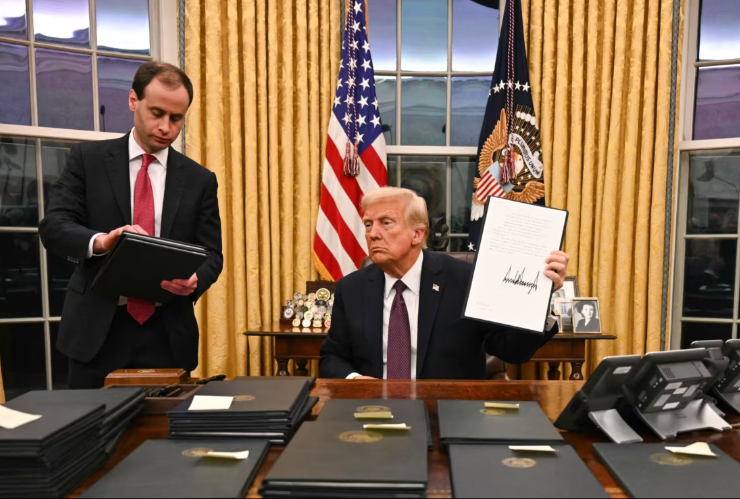USA Exits from UN Climate Assessment Process: A Strategic Move with Global Repercussions
The Trump administration's decision to withdraw from the UN’s global climate assessments marks a significant shift in the US's role in shaping international climate policies. As the IPCC’s crucial session in February 2025 wrapped up, this move left the US without an official voice in future climate regulations, potentially weakening its influence on carbon markets and sustainable technologies. With China gaining ground in climate diplomacy, this exit could hinder US competitiveness, making it harder for businesses to navigate a world where sustainability is becoming the new standard. The consequences may ripple across economic and political landscapes for years to come.

The Trump administration has officially ordered American scientists to cease participation in the development of the UN's global climate assessments. Joint projects between the US Global Change Research Program (USGCRP) and the National Oceanic and Atmospheric Administration (NOAA) with the Intergovernmental Panel on Climate Change (IPCC) have been halted.
Break at the Final Stage
This decision was made just days before the crucial IPCC session, which took place from 24 to 28 February in Hangzhou, China. During this session, countries finalised the approaches for the Seventh Assessment Report (AR7) — a key document for shaping climate policy, international regulation, and global investment strategies for the coming years.
As a result, the official position of the USA in this process has effectively vanished. This not only undermines the country’s scientific credibility but also removes Washington's influence over future decisions on carbon markets, investment standards, and technological priorities.
US Business Community at a Crossroads
For American businesses, the exit from the IPCC process presents not only political but also economic risks. Global investors, credit agencies, and international corporations are increasingly relying on the UN climate assessments when making strategic decisions — from credit ratings to investment allocation and the selection of supply chain partners.
Ignoring these standards could put US companies at a disadvantage compared to their European and Asian counterparts, where transparency on climate issues has already become an integral part of business strategies.
Global Response to the US Withdrawal
The decision has been met with concern in climate and financial circles. Leading European sustainable development funds have already noted that the absence of the USA from the global climate reporting system will create gaps in data and increase the fragmentation of international standards.
Such fragmentation is likely to lead to higher costs for international businesses, especially multinational companies that will now have to navigate a myriad of reporting systems and regulatory requirements across different countries.
Analysts warn that the USA risks becoming a country with a “climate trust deficit,” which could damage the investment appeal of not only eco-friendly sectors but also the US economy as a whole.
Long-term Consequences for the US Economy
If the break with the IPCC becomes a long-term strategy, the US economy may face several systemic risks. Firstly, access to international green funds and loans could become more limited, as major global financial institutions are increasingly incorporating climate criteria into their investment portfolios. Secondly, carbon barriers for exports not meeting strict climate standards could hinder US exporters’ competitiveness in international markets. Thirdly, the US’s withdrawal from leading international environmental technology projects could make it harder for the country to access critical innovations. Finally, the USA could lose its global competitiveness, as countries ignoring climate standards will face higher reputational and financial risks.



